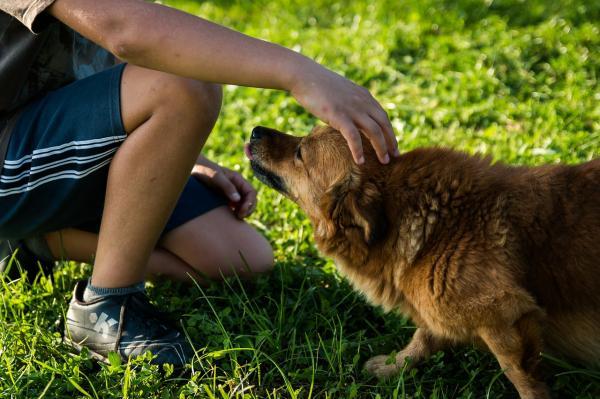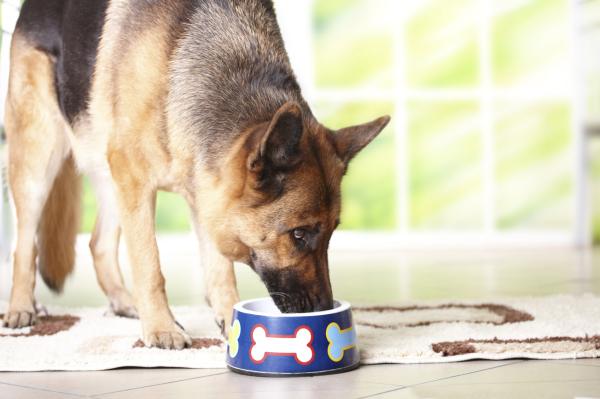How To Care For A Dog With Distemper


Distemper is a serious disease that can endanger the life of your dog. This condition has no known cure, but once diagnosed, the animal is treated to improve the symptoms caused by the disease. Other than that, all you can do is hope that the virus hasn't progressed too far and that the animal will recover naturally. If your pet is suffering from distemper, at OneHowTo.com we offer you some advice on what to expect and how to care for a dog with distemper.
Get your dog to the vets first!
First of all it is important to get a diagnosis and make sure that it is definitely distemper your dog is suffering from. In our article how do I know if my dog has distemper you can discover more about this disease, its symptoms and its complications.
Once your pet has been diagnosed by a veterinarian, he or she can give you a prognosis of your dog's condition. The chances of your dog recovering from distemper depend on the strain of the virus, the strength of your dog´s immune system and the care it receives. Remember that distemper is a very dangerous virus that is often life-threatening. If detected early however, it is possible for your pet to make a recovery.

Learn about distemper
The symptoms of distemper directly affect the respiratory, intestinal and nervous systems of the dog, and can be devastating for both the animal and for us. Taking care of a dog with distemper will therefore basically consist of trying to improve their quality of life and reducing their suffering.
It is important to know that this task will require a lot of your time and attention, as the animal may even reach a point when it has difficulty performing even basic tasks such as eating food or drinking water.

Keep your dog hydrated
When looking after a dog with distemper it is fundamental not keep them hydrated. Reduction in fluid intake is one of the first symptoms of the disease, so you should give your animal water constantly.
If there comes a time when the dog doesn't want to or is unable to drink out of its bowl, you must administer water with a needle-less syringe. Alternatively you can give the dog some homemade chicken or beef broth without salt or seasoning, which will also provide some nutrients.
Ask your vet for a dietary supplement drink, like a sports drink that is suitable for dogs that can keep it hydrated while providing it with essential vitamins and nutrients.
If your animal develops severe diarrhea, talk to your veterinarian about intravenous rehydration therapy.

Nourish your dog properly
A dog with distemper will suffer a significant loss of appetite, but it is essential for it to stay nourished. It is recommended that you switch to canned food, which is softer and easier to digest. If your dog refuses to eat, open its mouth yourself and feed it slowly by hand. Liquefied chicken with a little broth or liver are nutritious alternatives to feeding your dog while it is suffering from this illness.

Add vitamin B
In cases of distemper is very common to give the dog B Vitamins, due to the benefits it brings to the muscles. Do not hesitate to ask your vet if they have not already recommended it, as a Vitamin B supplement could really benefit your dog´s health.
Furthermore, if your dog has been prescribed antibiotics, monitor your dog for side-effects on its skin. Also, in dogs like in humans, it is important to finish the whole course of antibiotics to prevent antibiotic resistant bacteria.

Keep a close eye on your dog
It is very important to stay in touch with your veterinarian to monitor the health of your animal and the progression of its symptoms. Distemper is not contagious to humans, but it is a very difficult virus for dogs to overcome, so your care and a specialist´s help is essential.
In advanced stages, you should monitor for specific side-effects. Your dog may develop severe dehydration or pneumonia. You should also be monitoring your dog for seizures or convulsions.

Prevent distemper
As with all illnesses in dogs or in humans, the best remedy is prevention. Always make sure that your dog is up to date on all his vaccinations, as it could save his life. The first distemper vaccination is normally given between 6 and 8 months of age, after which a booster shot is administered on an annual basis.
It's also important to vaccinate female dogs before they become pregnant, as distemper could be transmitted from the mother to the puppies, provoking sudden death.

If you want to read similar articles to How To Care For A Dog With Distemper, we recommend you visit our Pets category.











